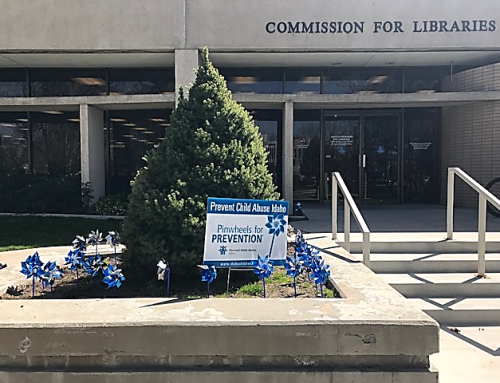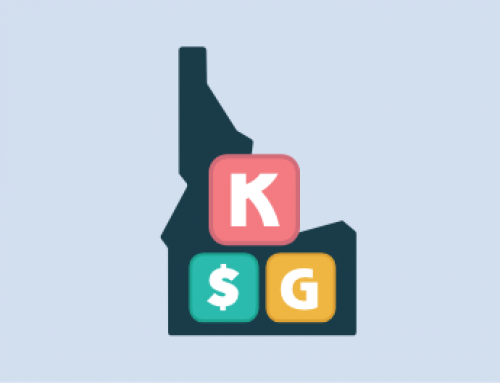Public libraries endeavor to create a welcoming and safe environment for all. In order to lay the groundwork for this atmosphere, most libraries have rules of conduct or an acceptable behavior policy. These policies often do not take into account the fact that the responsibility for the care, safety, and behavior of children and vulnerable adults using the library rests with the parent, legal guardian, or caregiver who is of sufficient age and ability to attend to the safety and ensure the appropriate behavior of library patrons who cannot be responsible for themselves.
For the safety of all concerned, all library users, including children and vulnerable adults, are expected to comply with the library’s policies. And patrons who do not abide by the library’s rules may be asked to leave the library. It is the parent or legal guardian’s job to supervise the children he or she brings to the library. It is the teacher’s job to supervise the children he or she brings to the library. And it is the job of the custodian or caregiver to look after the vulnerable adult he or she brings to the library. The staff at your public library is busy answering questions, sending kids on wonderous storytime adventures where they can develop early literacy skills, creating lifelong learners, organizing maker events for teens and tweens, leading fit and fallproof classes for seniors, assigning public computers, and lots more. Even if the library’s staff had the time to take reponsibility for monitoring the activies and managing the behavior of children and vulnerable adults, that is not what they were hired to do.
In order to ensure a safe and pleasant environment for all, library staff members must be able to explain to patrons of all ages, and to their parents, guardians, and caregivers, what the library’s expectations are for behavior and what the consequences will be for violating those expectations. Staff can develop this competency by familiarizing themselves with the library’s policies and be able to explain and enforce those policies whenever necessary. Learning about the library’s policies and why they are important is also part of new trustee orientation. Trustees not only approve the library’s policies, it is then their job to explain and defend those policies to the community.
Does your library have a policy on the safety of unattended children and vulnerable adults? This policy should address:
- How long library staff members are required to wait with the child or vulnerable adult after closing time if it is discovered that there is no reponsible parent, guardian, or adult present to take custody of the vulnerable patron. The people who work at the library have lives and families that they need to see to after work. Staying with the unattended vulnerable patron could be a hardship on the library’s staff. This will also have a direct impact on the library’s staffing budget, as the staff cannot be expected to work for free while they are waiting for the responsible party to show up.
- How many times staff members will attempt to contact the child’s custodial parent or legal guardian or the vulnerable adult’s caregiver. A young child may not even know the telephone number of his or her parent(s), as many people frequently change numbers for financial reasons these days.
- At what point library staff are required to call the police or sheriff. Someone must take custody of the child or vulnerable adult. It is not legal to transport vulnerable populations without permission from the reponsible party. You may wish to consult your library’s attorney and/or risk management provider on this point.
- How old a child must be before he or she is allowed to be responsible for younger siblings.
It is key to have this policy in place so that public service staff can use it to help educate parents, caregivers, and teachers who wish to bring their classes to the library.
Some good examples of policies on unattended children and vulnerable adults can be found at:
- The Akron-Summit County Public Library, Akron, OH: http://www.akronlibrary.org/about/policies/unattended-children-vulnerable-adults
- Everett Public Libraries, Everett, MA: http://www.noblenet.org/everett/policies.html
- Falmouth Public Library, Falmouth, MA: http://www.falmouthpubliclibrary.org/wp-content/uploads/2016/01/Unattended-Children-2016.pdf
- Weslaco Public Library, Weslaco, TX: http://www.weslaco.lib.tx.us/circulation/policies.html
- The DeKalb Public Library, Decatur, GA: http://dekalblibrary.org/about-us/policies
When creating or updating your policy, you may wish to consult some definitions.
- Idaho’s Child Protective Act defines “child” as an individual who is under the age of eighteen (18) years.
- “Vulnerable adult” is defined in Idaho Code § 18-1505(4)(e) as a person eighteen (18) years of age or older who is unable to protect himself from abuse, neglect or exploitation due to physical or mental impairment which affects the person’s judgment or behavior to the extent that he lacks sufficient understanding or capacity to make or
communicate or implement decisions regarding his person, funds, property, or resources.
Reporting Suspected Abuse:
In Idaho, any person who has reason to believe that a child has been abused, abandoned, or neglected is required to report. The reporter is not specifically required by statute to provide his or her name in the report.
The library’s staff is required to report suspected child maltreatment or the mistreatment of a vulnerable adult to the appropriate agency. You can print out this summary from the Child Welfare Information Gateway at https://icdv.idaho.gov/conference/handouts/2014/5_mandatory_reporting_summary.pdf to keep at your library’s service desks and in your succession planning notebook.
To report child abuse, neglect, or abandonment, the statewide telephone number is 1-855-552-KIDS (5437). You can also call the Idaho CareLine at 2-1-1 or 1-800-926-2588 or use the local telephone numbers:
To report the abuse, neglect, or abandonment of a vulnerable adult, call 2-1-1, Monday through Friday, between the hours of 8:00 a.m. and 5:00 p.m.




